
A conversation with Kyle Shinseki, S.J., campus minister at Santa Clara University, on what intercultural ministry is, why it is important in campus ministry, and how you can implement culturally responsible practices in your ministry.
Fr. Kyle Shinseki grew up in a diverse community in rural Kaua’i and his first experience in integrating intercultural practices was at his high school where he initiated the “Students for Racial Understanding” student club. He went on to attend M.I.T. for undergraduate studies in Urban Planning and UCLA and Northwestern for graduate studies in Urban Studies and Business.
He became Catholic during his time at M.I.T. where he was invited by friends to Spanish Masses off campus and says he learned to pray in Spanish. It was this experience that really helped him identify that faith life, with all of its ethnic expressions should be more integrated into college life, and his passion for intercultural campus ministry was born.
In the years leading to his ordination in 2018, he established the Spanglish Christian Life Community (CLC) at Loyola Chicago, which led to the creation of Loyola's Filipino CLC. He then went on to be the first coordinator for Asian/Pacific Islander Initiatives at Creighton University, where he organized an annual Asian/Pacific Islander Heritage Mass.
In this conversation, Fr. Kyle shares:
A definition of intercultural ministry
Why intercultural ministry is especially important on college campuses
What intercultural ministry is NOT
How to reach across cultural boundaries and build bridges between cultural faith communities
Challenges in creating a more culturally responsible campus ministry
Where do we start as campus ministers
Intercultural Ministry: A definition.
“Intercultural ministry seeks to ensure that the rich tapestry of ethnic cultures and traditions through which members of a worshipping community receive, understand, and share the Catholic faith is reflected in the ways that the community worships, teaches, and celebrates the faith.”
Many students often grow up in monocultural settings where there is one predominant culture, and the practices of that culture are reflected in how faith is practiced. This leaves little room for exposure to other beautiful ways of being Catholic.
Intercultural ministry:
- Values and celebrates each group’s traditions
- Builds just, equitable, accepting, faith-based communities
- Shares the Gospel through appropriating ethnic traditions
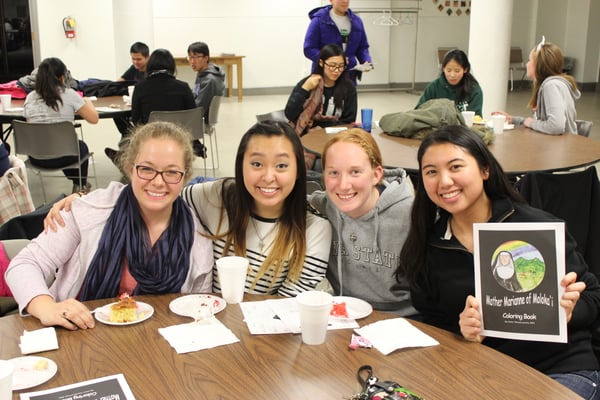
Why intercultural ministry is especially important on college campuses
The student population on college campuses is exponentially growing in diversity. When they arrive at a college campus ministry that is monocultural in its practice this can leave them feeling alienated and exacerbate the challenges of transitioning away from home for the first time.
During a time in their human development when they are forming autonomy and shaping their identity, if they don’t find belonging in their campus ministry because their culture isn’t represented or valued, they’ll find it somewhere else. And while some of these “somewhere else” places can be positive (sports, academic clubs, cultural clubs, music, and theatre), their priority shifts away from faith.
One student shared his experience visiting the student Mass at the campus ministry at his college:
“Little did I know that it would be very very difficult to practice my faith [in college]. I sat all alone. I looked around the room and everybody did not look anything like I did. I didn’t know the prayers. I thought everyone was looking at me because I didn’t know how to say the prayers. I thought well maybe people think I’m not even Catholic! I did not feel at home. I did not feel like there was a place for me. I looked everywhere for La Virgen de Guadalupe and I couldn’t find it.”
This student grew up Catholic and was excited to practice his faith in college! But when he got to campus ministry, he was met with a faith he did not recognize, and that did not make space for the beautiful cultural traditions of his Catholic life. Fr. Kyle asks, “If campus ministers don’t do it, who will?”
What intercultural ministry is NOT
Siloed or divisive. Fostering strong ethnic identities in ministry positively disposes students to share cultural traditions with others. When implemented appropriately, intercultural ministry encourages students to be more accepting, compassionate, and aware of their peers and others.
Superstitious or heterodox. Traditions like the Vietnamese Lunar New Year, Santo Niño, and Guadalupe Aztec Dancers are examples of faithful and accurate practices of the Catholic Church. It might feel easy to label these as cultural “superstitions,” but each is deeply rooted in centuries old traditions specific to these cultures.
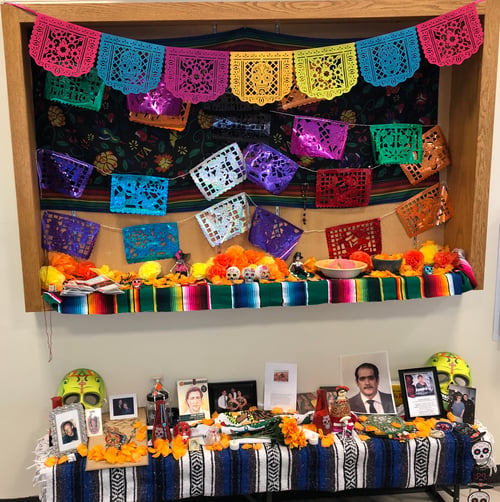
Performative. Intercultural ministry should be grassroots. Talk to the students in your ministry about what is meaningful to them about their culture. Plan your intercultural events around what the students desire and allow them to share their cultures through authentic expression without restriction or agenda.
How to reach across cultural boundaries and build bridges between cultural faith communities
Look for common devotions. Fr. Kyle shared a successful intercultural experience where the pro-life community on campus came together with Mexican American students in a devotion to Our Lady of Guadalupe, Pro-Life Patroness.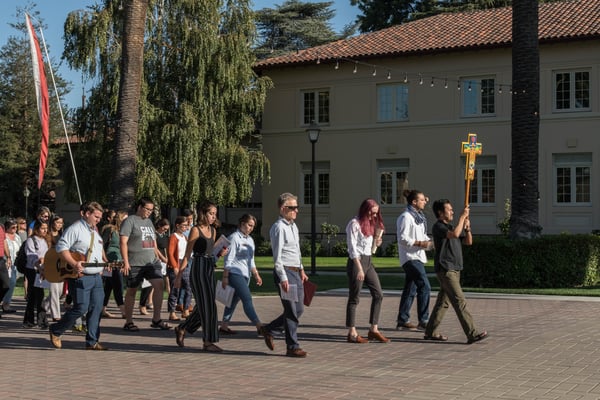
Look for common liturgical seasons. Simbang Gabi, a Filipino Catholic tradition, and Las Posadas, a Latino Catholic tradition, are both over four hundred years old and celebrated in the nine days preceding Christmas. This was a beautiful time to celebrate both cultures with all students in campus ministry.
Look for shared heritage. St. Marianne Cope was born in Germany and spent most of her life ministering with the leper communities in Hawai’i. Celebrating her feast day was the perfect opportunity to make space for both Hawaiian and German students on campus. Fr. Kyle hosted the first ever AAPI student Masses on campus and a student shared,
“I was really able to showcase my culture with my faith and able to connect those two. I was able to dance hula at the AAPI Mass and to minister through that. Although it was really different for people it really felt like home and it still honored God but in a different language and culture.”
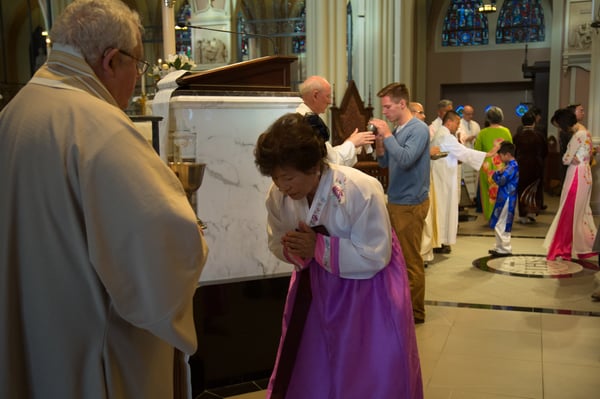
What are some challenges in creating a more culturally responsible campus ministry?
Two challenges Fr. Kyle has experienced in this work include:
Resistance to change. The sentiment of “this is how it’s always been done” and “people will be upset if we change this” is not new to any leader in ministry. Perhaps there’s a staff member who already has the calendar, music, and all aspects of programming planned out for the year based on how it’s always been done.
It can be difficult to introduce something new to a naysayer but help them understand that “Good intercultural ministry requires a level of discomfort. A meaningful intercultural liturgy includes something familiar and something unfamiliar for all those present, regardless of their cultural background.” A marrying of what has been and what could be is a great starting point.
Insensitivity and lack of awareness to communities. Again, intercultural ministry should start with your student community. First, create an environment where students can genuinely share their cultural identity and bring education and understanding to others about their traditions. Then, allow meaningful conversations to build awareness and increase sensitivity and kinship.
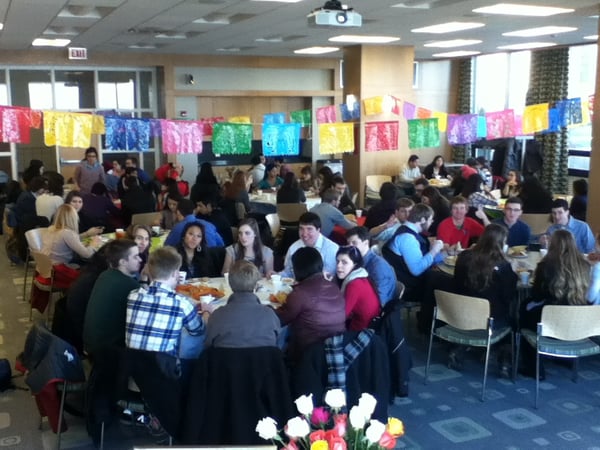
Where do we start as campus ministers?
When campus ministers are ready to invite intercultural practices to their ministry, start by reaching out to ethnic clubs on campus or the campus multicultural center. Plan an initial meeting to gather interest for celebrating a significant religious or cultural holiday as a kick-off event, then have follow-up meetings to establish a small group dedicated to intercultural practices.
“I feel like we could have a lot more support from campus ministry and from students who are not our race.” - student at a Catholic University
Make intercultural ministry a committee within your student leadership team and identify students in the ministry who are personally connected to this work. Intercultural practices don’t have to be one off events but can be threaded throughout the ministry calendar and programming. Areas like hospitality, service opportunities, and social events can easily include the traditions, customs, and ways of worship from many cultures.
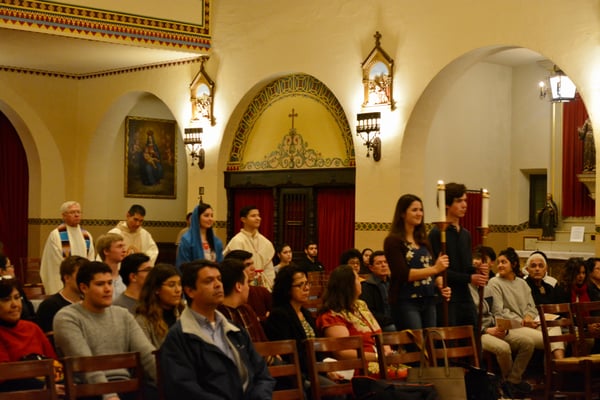
Through shared language, shared celebrations, and shared cultural experiences in ministry, students grow in compassion and vulnerability, and ultimately grow in faith.
The gift of being received and understood within the context of faith life is crucial in reaching students who feel spiritually homeless on campus.
"Our great challenge is to create a culture of encounter, which encourages individuals and groups to share the richness of their traditions and experiences, to break down walls and to build bridges." – Pope Francis
Takeaways:
- Cultural context matters in campus ministry
- Get creative with outreach
- Facilitate ethnic communities
- Encourage sharing of traditions
- Dare to try something new!
How will you bring intercultural practices to your ministry?


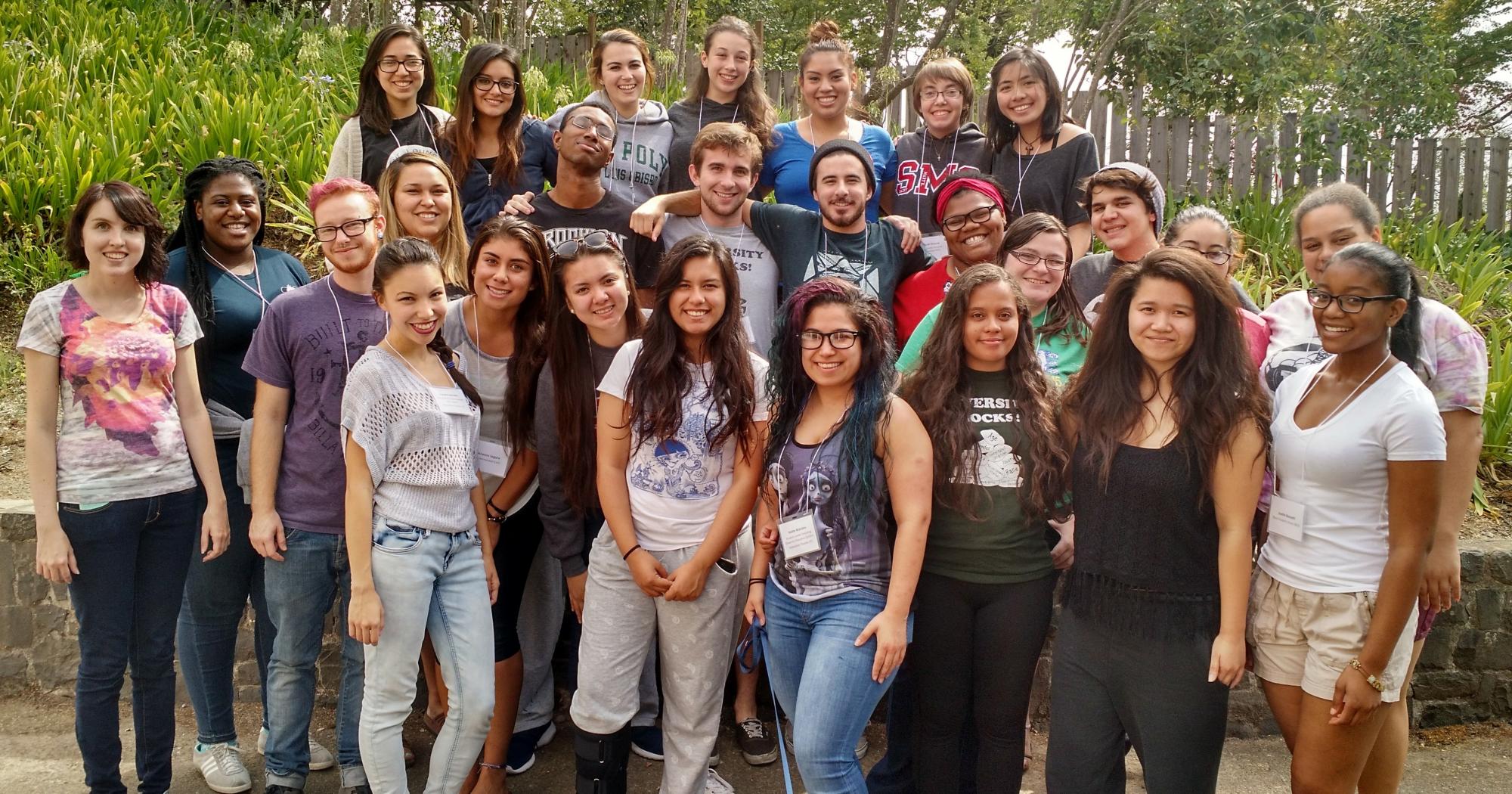

Submit a Comment